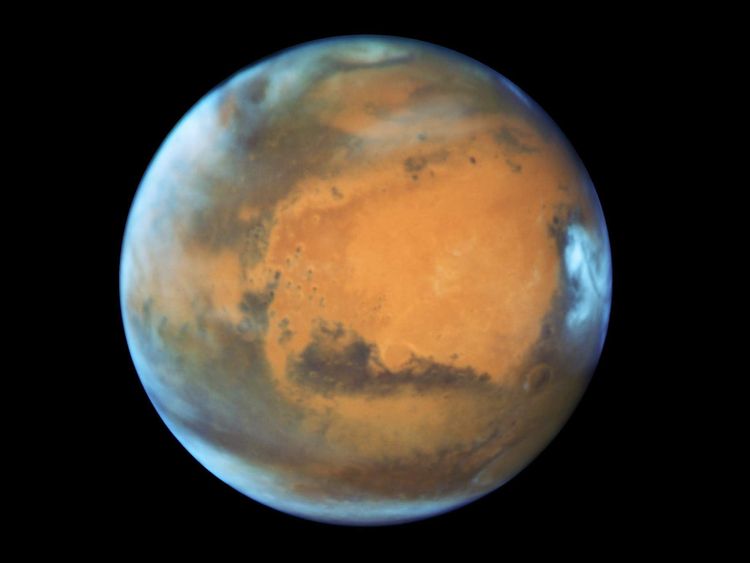After a five-year search NASA has chosen the Jezero Crater as the landing site for its Mars 2020 rover mission.
The crater was selected from more than 60 candidate locations which were studied, analysed and debated by the mission team and planetary science community.
The US space agency's mission to place a next-generation rover on the Martian surface is scheduled to launch in July 2020.
It will examine the planet for signs covering whether it was ever habitable and analyse the surface and beneath for ancient microbial life.
"The landing site in Jezero Crater offers geologically rich terrain, with landforms reaching as far back as 3.6 billion years old, that could potentially answer important questions in planetary evolution and astrobiology," said NASA's Thomas Zurbuchen.
"Getting samples from this unique area will revolutionise how we think about Mars and its ability to harbour life," added Mr Zurbuchen, associate administrator for the agency's science mission directorate.
The Jezero Crater is located on the western edge of a giant impact basin just north of the Martian equator.
Known as Isidis Planitia, the impact basin presents some of the oldest and most scientifically interesting landscapes Mars has to offer, according to NASA.

"Mission scientists believe the 28-mile-wide (45km) crater was once home to an ancient river delta and is a prime location to have preserved ancient organic molecules and evidence of microbial life.
"The Mars community has long coveted the scientific value of sites such as Jezero Crater, and a previous mission contemplated going there, but the challenges with safely landing were considered prohibitive," said Ken Farley.
More from NASA
"But what was once out of reach is now conceivable, thanks to the 2020 engineering team and advances in Mars entry, descent and landing technologies," added Mr Farley, a project scientist for Mars 2020 at NASA's Jet Propulsion Laboratory.
Jezero Crater's selection is still "dependent upon extensive analyses and verification testing" according to NASA, and a final report will be given to NASA HQ towards the end of 2019.
[contf] [contfnew] 
Sky News
[contfnewc] [contfnewc]






